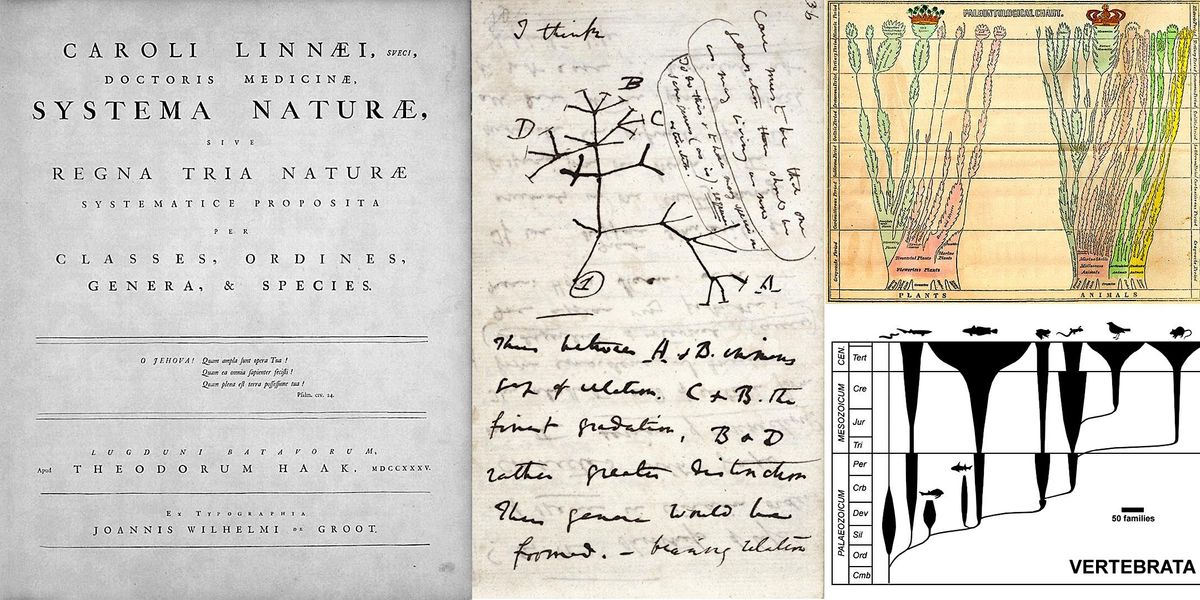
About this Event
WEEKNIGHTS AT THE WAGNERBeyond Linnaeus: Pennsylvania Paleontology and the Surprising Power of a (Biological) Name With Dr. Jason Downs
What’s in a name? Shakespeare may have dismissed the relevance of names but there is an entire biological discipline focused squarely on the science of names: taxonomy. For nearly 300 years, a single system, or taxonomic code, has provided the ruleset for the names given to species and groups of species. With the first edition of Systema Naturæ in 1735, Carl Linnaeus established the foundation for what has become the most enduring system of biological naming. However, his rank-based organizational system – kingdom, phylum, class -- is rooted in pre-evolutionary thinking and this has made biological names unstable in the face of evolutionary change and new discoveries.
In the last four decades, a new taxonomic code has been adopted that is designed around evolution and ancestry. Under the new system, names explicitly reflect evolutionary relationships. Nowhere are ancestry-based names more relevant than in paleontology. With this talk, Dr. Jason Downs will share his recent paleontological projects from Pennsylvania’s Late Devonian (375–360 Ma) Catskill Formation. His focus will be on the specific ways in which modern naming practice can reshape our understanding of the history of life.
The Museum will be open to visitors until the talk begins at 6 PM.
This event will be in-person and will not be recorded.
About the Speaker
Dr. Jason Downs is Associate Professor of Biology at Delaware Valley University and a Research Associate at the Academy of Natural Sciences of Drexel University in the Vertebrate Paleontology Group. His research includes extensive field work on Paleozoic rocks throughout North America and he was one of the team who discovered the Tiktaalik roseae, a groundbreaking specimen that shed new light on the vertebrate transition from sea to land. He has a PhD from Yale University in Geology and Geophysics and has a BA in Biology and Geology from the University of Pennsylvania. He is a member of the Wagner’s faculty, teaching courses on paleontology, geology and biology since 2012.
Things to Know Before Your Visit
• Walk-in attendees are welcome. Advance ticket reservations are appreciated and will speed up your entry.
• Masks are recommended but not required.
• There is no coat check or place to stow personal items – please travel light
• To protect the specimens and our historic interiors, photography is not allowed in the museum and food and drink are not permitted in the building.
A dream that keeps growing…
In 1855, William Wagner had a dream of providing free science education to anyone who wanted to learn, regardless of background or ability to pay. Today, the Wagner offers more programs to more people than ever before! Your support helps us provide free education, not only through the museum, but through a wide range of courses, lectures, field trips, and children’s science programs. Donations also assist us in caring for the museum and library collections and in preserving our wonderful building, which was designated a National Historic Landmark in 1990. To learn more about what we do please visit our website.
Ticket Information
In keeping with its original charter, admission is free—donations are suggested to ensure the future and quality of Wagner's free education programs and to preserve its National Landmark building and collections.
Suggested Donations
$10/adult
$5/person for college students & children
For any questions, please email [email protected] or call 215-763-6529 x17.
If you would like to check your membership status or become a member, please email [email protected] or call 215-763-6529 x11.
Images: Title page of Systema Naturae, Leiden, 1735; Page from Darwin's notebooks c. July 1837 with his first sketch of an evolutionary tree, and the words "I think" at the top; Edward Hitchcock's fold-out paleontological chart in his 1840 Elementary Geology; Evolution of the vertebrates at class level, width of spindles indicating number of families. Spindle diagrams are often used in evolutionary taxonomy. (all images sourced from Wikipedia)
Event Venue & Nearby Stays
Wagner Free Institute of Science, 1700 W Montgomery Ave, Philadelphia, United States
USD 0.00
